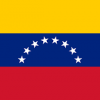Recent gvdlans’s comment on “Mukherjee Rajiv Articles “ has awaken me and thanks to gvdlans.
extraction from gvdlans...
"Copyright © by Gulf Publishing Co. All rights reserved.
Permission is granted by the copyright owner to libraries registered with the Copyright Clearance Center (CCC) to photocopy any articles herein for the base fee of $3 per copy per page. [...] Copy for other than personal or internal reference use without express permission is prohibited."
I'm sure the C.E.P. has a similar copyright statement. In this case, you can easily obtain a legal copy via library services (e.g. http://www.englib.cornell.edu/ or http://www.lindahall.org/) or directly from the publishers, at a reasonable cost. Sending digital copies as described in the previous posts is simply illegal.”
Thanks to gvdlans’s heavy hit …
Infact, i am always struggling with above concept : Copyright & Sharing.
I am ready to listen to your advices...
a) We always apply and made reference to Bernouli theorem for hydraulic related issue. Do we pay some royalty to Bernouli family ?
c) Researcher publish paper and made reference to other published paper which own by organization e.g. CEP, etc, is he/she violating copyright ?
Personally I am not very sure with above and don’t really know how far the copyright is applied.
Nevertheless, I am having the opinions (for ethic point of views) :
i) the document (with copyright) is for personal study and understanding purposes, based on the Knowledge Sharing Principle, then there shouldn’t be any problem with the copyright.
ii) the user SHALL NOT made reference to the document (with copyright ) in some report, papers, etc for COMMERCIAL purposes.
I am just a newbie and i wish to hear from all of you...
P.S.: If i have created some uneasy feeling to some of you, please accept my sincere appologize.
regards,
JoeWong

 FB
FB










